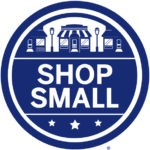 This is part 2 of my extensive interview with Scott Krugman, Director of Communications at American Express on Small Business Saturday. In this part, Krugman share’s how the program evolved from year 1 to year 2 and offers some hints as to what we can expect to see later this month (November 24th to be exact). I realize this is a lot of ink to dedicated to one program but if you are a student of marketing, you’ll want to read on because in this you’ll find the secrets to truly great marketing programs–create a win / win / win situation for consumers, customers & partners and ultimately your own brand will triumph.
This is part 2 of my extensive interview with Scott Krugman, Director of Communications at American Express on Small Business Saturday. In this part, Krugman share’s how the program evolved from year 1 to year 2 and offers some hints as to what we can expect to see later this month (November 24th to be exact). I realize this is a lot of ink to dedicated to one program but if you are a student of marketing, you’ll want to read on because in this you’ll find the secrets to truly great marketing programs–create a win / win / win situation for consumers, customers & partners and ultimately your own brand will triumph.
Drew: How did the program evolve in Year 2 (2011)?
Year 1 was like catching lightning in a bottle. I think the results kind of blew the expectations out of the water. Year 2, we knew there was an opportunity for it to be bigger. For that to be the case though, it really needed to be more than just about American Express. And I think you saw more corporate partners were engaged. FedEx had a $1 million investment in “shop small” gift cards for consumers. They really did a great job in getting the word out and really mobilizing consumers. There were a number of public officials that rallied around the day and really encouraged their constituents to shop. There was such a groundswell of grassroots support that it went all the way to the White House.
Drew: So, even politicians jumped on the SBS bandwagon?
That’s it, exactly. It’s amazing: in a year where we saw Republicans and Democrats fight over everything—whether it’s the debt ceiling, deficit, you name it—the one thing they could agree on was that, in this particular case, November 26 would be Small Business Saturday. The Senate passed a unanimous resolution making that day Small Business Saturday. But it takes more than just government to encourage people to shop because, let’s face it, with their Congressional approval rating, that’s not exactly the watermark to get consumers to shop.
Drew: Back to Year 2 and the program’s evolution…
We knew that the amplification of the “shop small” message on the day was crucial. So in order for this thing to really be successful, small business owners really needed to own the day. And that meant making special offers around it. So that’s where the Small Business Saturday tool kit comes into play. It allows small business owners to do a number of things. It allows them to do things that maybe some businesses take for granted like help to create a Facebook page. I believe we did the free ads. We allowed them to print out in-store signage because not everything is done via online.
Drew:So, let’s talk about some of the big differences between Year 1 and Year 2 and the increase in partners.
I think there were more than 50 corporate and digital partners (including Verizon, Costco, Facebook, Foursquare, Twitter, Google) as a part of Small Business Saturday in Year 2. Again, that really more than doubled-down on the commitment and what this day became in Year 2 versus Year 1. But you combine that with the support from public officials, the support from local, state and national groups—whether it’s the SBA, the NFIB (National Federation for Independent Businesses), convention and visitor bureaus from various cities—all of this culminated.
Drew: So, on an earned media basis, the exposure must have been unbelievable?
Year 2, there were close to 10,000 [media] placements and the total circulation was around 1.7 billion.
Drew: Did people end up spending more or simply shift spending from big companies to small businesses?
We’re not in the business of picking winners and losers here, right? The message was, during the holiday season, “Hey, don’t forget to allocate some of that spending to small businesses and discover what’s so special about them.” That’s what happened. Consumer spending was up for the holiday season.
Drew: Back to Year 2. Why did it work so much better?
There was more awareness of the day. More small business owners were able to leverage the tools in the tool kit that they didn’t have Year 1 to promote the day. So there was definitely a stronger message to the consumer. And the consumer was better able to mobilize. Through the Shop Small Facebook page, a lot of the merchant offers were loaded in, so consumers could find merchants that were close to them through this map and find their offers. I think there were more tools for consumers to make it easier for them to shop small.
Drew:So, at this point, do you now say, okay, we’re going to create an entity called SmallBusinessSaturday.org and let it run itself?
Small businesses at this point are free to promote SBS in any way they want, right? It’s their day. So, like I said, we will always support it. No matter how it started, the end result is this day is bigger than any one company. It really is. Local communities last year started block parties around the day to get consumers into their local downtown areas to shop the day. People were inspired by it, and they want to do things around it. It’s not like they’re calling us and asking us for permission—they’re doing it.
It all starts with the idea. No one entity owns Cyber Monday; however, someone created it.
Drew: Right. So nonetheless, you’re American Express, and you either continue to up the ante on something and keep making it better, like you’ve done with OPEN. So, looking ahead?
Needless to say, Small Business Saturday is something that’s very near and dear to our heart. And it’s something that we plan to support for a very, very long time, and we want to continue to surprise and delight small business owners across the country and make this day as special for them as possible.
Drew: Will you be expanding the tool kit?
As far as the tool kit goes, you have to remember now … the tool kit doesn’t just give them the tools to promote the day; it gives them a lot of tools and skill sets that they need to build their business throughout the year. I mean, flattening the learning curve for small business in the social space, that’s going to help them attract more customers year-round. That’s the beauty of what we’re doing on Small Business Saturday. … These tools might be built around supporting a day, but they live beyond the day. And it allows small businesses to make a compelling argument to their customers by shopping small as a year-round proposition.
Drew:There must have been a few skeptics about your involvement with this program?
Unfortunately, there’s always going to be skepticism, and I’m actually surprised there wasn’t more of it. Any time you have a large company involved in something like this, I think it does open it up to some skepticism, especially in the times that we live in. But that’s okay. The detractors are far fewer than the supporters. And when you go to the Facebook page and you read all the comments from small business owners and they talk about the fact that transactions were up 40 percent for themselves on the day—or in some cases, double—you know that it’s worth it. There are probably more detractors for Black Friday than there were for Small Business Saturday, if you think about it.
Drew: Did non-AmEx merchants benefit as well?
Because, ultimately, we’re encouraging people to shop small, no matter what card they use, no matter where they shop, … the small business owner that chose not to do anything for Small Business Saturday might very well get a customer or two they wouldn’t have gotten if the day didn’t exist. I think that’s kind of the irony. It’s the halo effect of the day that makes everyone benefit.
Drew:You must have faced different kinds of challenges in Year 2, given more time to plan.
That’s an excellent question. Year 2, timing is always a challenge. Going out too early. When do you start talking about this in the press? When do the writers start talking about it, for example? When are merchants ready to start preparing for the day? Too much time is a blessing and a curse, right? It takes a village to create a day, that’s for sure.
Drew: So talk to me more about the balancing act here between helping small businesses and helping AmEx.
I think it’s not surprising if somebody says, oh, American Express is doing that … to get more sales on their card. That’s not the case. The case is to help support small businesses. And when small businesses are thriving, the economy thrives. Our CEO went on the Today Show and literally said, “I don’t care if you use cash, I don’t care if you use the card or not—just shop small on the day.” I think that was impressive. He’s saying, support your local businesses. And that’s a simple message and that’s why we’ve gotten so much traffic with it, frankly. If it was just [an AmEx] card play, it wouldn’t have worked.
Drew: As market leader, it’s pretty simple—if small businesses grow, you’re going to grow with them, right?
Absolutely. If small businesses grow, if more are created, that’s a marketplace that we want to thrive. We want them to thrive. When they’re doing well, we’re doing well. There are plenty of reasons for customers to use their card, and I don’t want this to turn into a commercial for us, but clearly, our customers think of us—we have a special place in their wallet, and we always will. And we know that. But again, we know for Small Business Saturday to be a success, we need to reach more than just our customers. So it’s a conscious play not for just us to reach out to consumers, but for other groups and other entities and other people and influencers and businesses to reach out to consumers as well.
Drew: It’s a much bigger idea than something as self-serving as “shop small businesses with the card.”
Right. It takes a lot of guts for any company to come to that decision. It’s impressive. At this point, it’s the expectation that we find innovative solutions for small businesses. And SBS is delivering on that very high expectation for us.
 Today marks the 3rd annual Small Business Saturday, a day in which the nation is encouraged to “shop small” and, in fact, does just that. Nestled between Black Friday and Cyber Monday, SBS is a powerful example of “Marketing as Service” from American Express, a company that has been taking this approach successfully for the past 25 years.
Today marks the 3rd annual Small Business Saturday, a day in which the nation is encouraged to “shop small” and, in fact, does just that. Nestled between Black Friday and Cyber Monday, SBS is a powerful example of “Marketing as Service” from American Express, a company that has been taking this approach successfully for the past 25 years.
